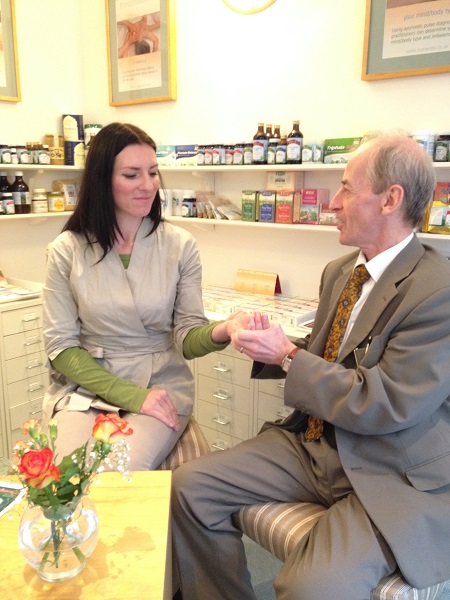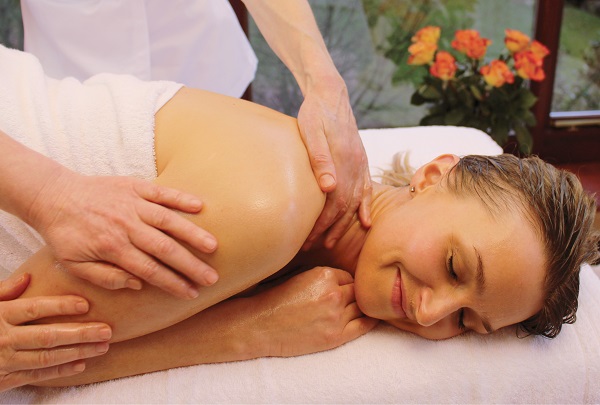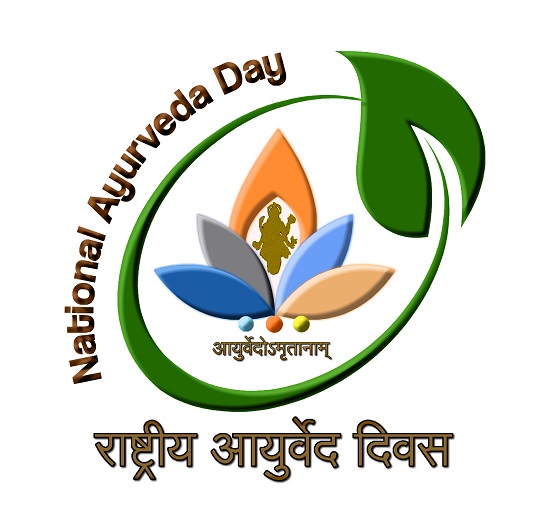Positive Health Online
Your Country

Ayurveda in the NHS
by Dr Donn Brennan and Dr Ravi Mooss(more info)
listed in ayurveda, originally published in issue 236 - February 2017
The 27th of October was the first annual ‘Ayurveda Day’ espoused by the Indian Government. It was celebrated by a motion in the UK Parliament calling on the Government to establish a Chair of Ayurveda. This motion recognized Ayurveda as an established multi-dimensional holistic approach to health, a preventative and curative approach for various health conditions and suggested it be integrated in to the National Health Services. So, what has Ayurveda to offer the NHS?
Ayurveda is the oldest living tradition of health. It may appear surprising that it offers solutions to modern problems. But throughout the ages we have suffered from the same miseries, disorders and diseases. Profound strategies of healing emerged from experience. An understanding arose of how your unique nature and your choices of lifestyle, diet, exercise, recreations, occupations and interests can all impact your health, happiness and success in life. Ayurveda offers a simple and holistic knowledge that empowers everyone to get the best out of themselves and of life. The only block to its widespread use is our beliefs. Growing up in a materialistic culture we just cannot appreciate fully how Ayurveda can explain our most sublime essence of Consciousness and how each of us creates our own reality. It is this holistic approach of Consciousness - Mind - Body in Ayurveda that makes its simple suggestions so profound and effective.
The NHS faces severe challenges. Some of the key challenges are:
- An ageing population and increasing life expectancy;
- A growing population;
- Lack of effective prevention strategies;
- Unhealthy lifestyle and diet causing an increase in cases of obesity and diabetes, heart attacks and strokes, cancers and many other serious diseases;
- Chronic Illness - incurable and not preventable;
- Side effects of medicines and iatrogenic disease;
- Increasing costs. Medical advancements save lots of lives every year, but push up costs considerably. It is estimated that progress in medical technology costs the NHS at least an extra £10bn a year. The Nuffield Trust estimates that the ageing and growing population alone could mean we need another 17,000 hospital beds by 2022 - and that’s just hospital beds. The number of doctors, nurses, other staff and equipment all will have to rise to meet demand.

Ayurveda as a solution offers:
- Health professionals being well versed with health, not only with disease:
Modern medicine offers treatments for disease. Doctors learn anatomy, physiology and biochemistry in their 1st year of medical school; thereafter their training in medical school and in their professional lives is about disease and its treatment. Even prevention in medicine consists of picking up early stages of diseases such as blood pressure and screening for cancers. Contrast this with the ancient Ayurveda texts and the training of Ayurvedic doctors where large periods of time are spent understanding what health is and how it is enhanced by living in tune with your unique nature, having the appropriate daily routine and changing lifestyle to keep balanced in the changing seasons and the changing times of life and so on. Probably a sign of the times is that there is now one school of medicine in the USA which integrates a Master’s degree in Ayurveda alongside the medical school training;
- Health promotion from an early age (preschool, school, university):
There are wonderful books for parents describing children’s health and how, by using Ayurveda to understand their natures, you can raise them with better understanding of their unique needs and talents. See Super Healthy Kids. A Parent’s Guide to Maharishi Ayurveda by Kumuda Reddy. The book Dharma Parenting by Wallace and Travis is a brilliant combination of Ayurveda and the understanding of the stages of development of children’s and adolescent’s nervous systems. Adding this wisdom to a school curriculum will result in extremely healthy and far more capable adults who will know how to prevent disease for life. This is nicely illustrated by one such school described in the book A Record of Excellence. The Remarkable Success of Maharishi School of the Age of Enlightenment. Surely this is what our educational system should be about. Such an education would prevent many of the chronic diseases that Medicine fails to understand and cure;
- Prevention oriented:
Medicine seems to have strayed far from its origins. The first ethic used to be ‘first, do no harm’. Yet medicines nowadays all come with side effects. Thereafter follows the major problem of iatrogenic disease. Ayurveda has four approaches to treatment. First, stop the factors in life that contribute to disease; second, start lifestyle and dietary factors that reverse the disease process; third, use harmless natural substances or approaches that heal – such as herbs, yoga, meditation etc.; finally, move on to strong treatments with side effects to treat strong disease. Most conditions can be resolved using the first three approaches alone. However, Medicine invariably starts at stage four – ‘take the tablets’. It is much more effective to use all four approaches. If you get in early before a condition is well established, it is easily eliminated using the first three approaches which are very cost effective. Not only do they treat the disease but also promote health which is the best strategy for prevention;

- Holistic:
Medicine is based on material sciences which inevitably miss the subjective reality where we mostly live our lives. Ayurveda understands clearly the basis of life in our subtlest reality of Consciousness. How this innate wisdom organizes your Mind-Body is eloquently and simply described, a very systematic and scientific understanding. Since it is you who creates your own body using ingredients borrowed from the universe, such as food and air inhaled, this knowledge is not only intuitive – it is common sense. Many people comment after hearing about Ayurveda that they absolutely relate to it. It is this insight which motivates people to use Ayurveda to enhance every level of life. Also with Ayurveda it is true that using a physical approach to health enhances one’s mental performance and joy in life in the same way that using say Transcendental Meditation – a Consciousness approach – cures blood pressure and enhances athlete’s performance. Such is the benefit of an holistic approach, every strategy impacts the person as a whole;
- Personalized:
Using Ayurveda, you understand yourself, your needs, your urges and desires and how best to achieve them by prioritizing your health. Also, it is reassuring that you can choose a health practitioner who sees you as unique and builds a health program specific to you and your needs. It is personalized medicine, prevention and health promotion at its best;
- Cost effective and affordable:
You are eating food anyway and so why not choose food that most suit you and therefore you would most enjoy? It is similar with many of the strategies of Ayurveda. If you take Ayurveda herbals they compare favourably with medicines for their cost. Even a residential course of panchakarma treatments is significantly cheaper than a hospital stay;
- Realizable:
The integration of Ayurveda in to our schools and health services would be very easily achieved if the will was there. Even the cost of integration would be insignificant in comparison to the budget for drugs. Drugs are designed to be symptomatic. There is no profit in healing. So, the massive budgets spent on medicines infrequently result in healing. New drugs are coming on-stream that may heal but they are priced at £50,000 a year per patient and even up to £500,000! The budget for drugs in the NHS is growing and is not sustainable. Consequently, the current approaches used by the NHS are financially no longer realizable. In contrast the thousands of years old approach of Ayurveda is simple, rational, cost effective and easily realizable;
- Proven:
In Medicine the proof is supposed to be based on accumulated scientific research. However, it is reported that, in foremost medical journals a significant proportion of the science is falsified. Furthermore, 50% of research is never actually published. This is because the drug companies fund most research and take ownership of copyright. They refuse to make public research which shows their products to be useless or even harmful. Yet doctors must follow the protocols that result from the published studies. It commonly happens that new wonder drugs must be taken off the market within a few years because their dangers have only become apparent with large-scale use, despite all the research done up to that.
‘Traditional use’ used to be acceptable as a form or proof. Experience had shown the benefits and safety of a product. Strangely it is accepted that a significant proportion of medical treatments have no scientific evidence base and are currently used because of their traditional use. Yet the same medical authorities can dismiss the thousands of years of practical and safe use of Ayurvedic products. Current legislation governing traditional herbal products seems designed to keep these products off the market, in the best interests of the medical drug industry who have lobbied fiercely for this;
- A growing population and increasing life expectancy:
Amazing that our greatest successes are becoming challenges for the NHS. I am always tickled by the contrast between Geriatrics – the medical approach to elders - and the same science in Ayurveda which is called Rasayana - Rejuvenation! Why not empower people as they age to recognize how they need to act their age! To behave, live, eat, love in accordance with their needs at this stage of life. This will prevent many disorders of ageing. Also, Ayurveda describes many strategies to promote health and rejuvenate elders. We all wish to age gracefully, with energy and joy. If Ayurveda was part of the NHS this ideal would be far more available making the growing population and increasing life expectancy a challenge which we can afford and enjoy.

As more people rise to the responsibility of taking care of their health using Ayurveda there will be a lot fewer GP visits. GPs will then actually have time to spend with their patients. They can then much better manage the seriously ill, at home. This in turn will take great pressure off the hospital system, which can then be better resourced to heal and enhance quality of life for the desperately ill and dying.
In London on April 1st and 2nd is the Second International Congress on Ayurveda – ‘The Pursuit of Health, Happiness and Long Life through Prevention Orientated Health Care’. This conference is run jointly by the International Maharishi AyurVeda Foundation (which was instrumental in globalising Ayurveda over the past decades), with the All India Ayurveda Congress (the association of 450,000 Ayurveda doctors in India) and the International Academy of Ayurveda (the foremost Ayurvedic academic association in India).
In summary, something significant has started. The House of Commons motion is a sign of things to come. Ayurveda will be part of the National Health Service. Consequently, our children and their children will live longer, happier lives.
Comments:
-
No Article Comments available
